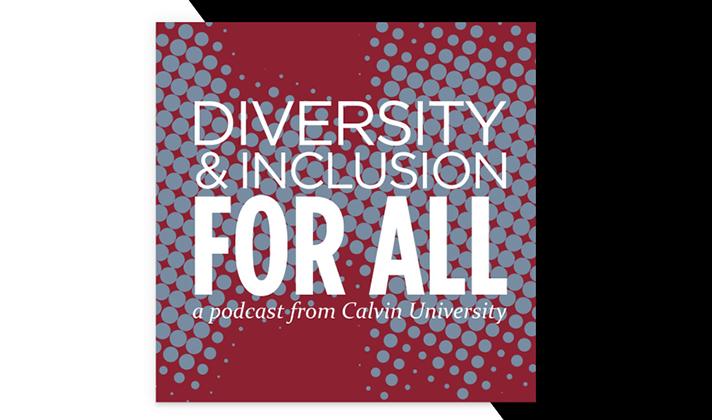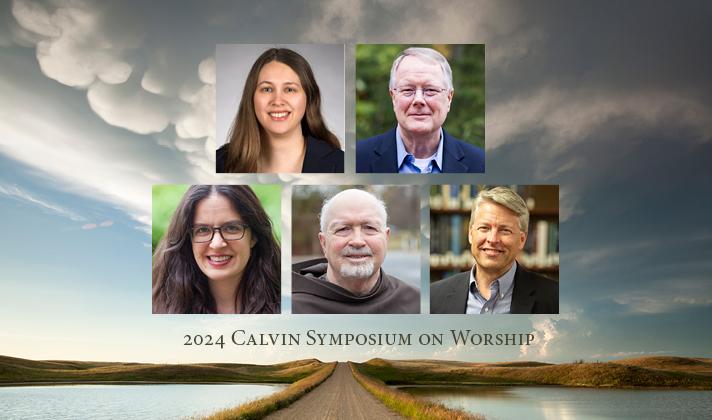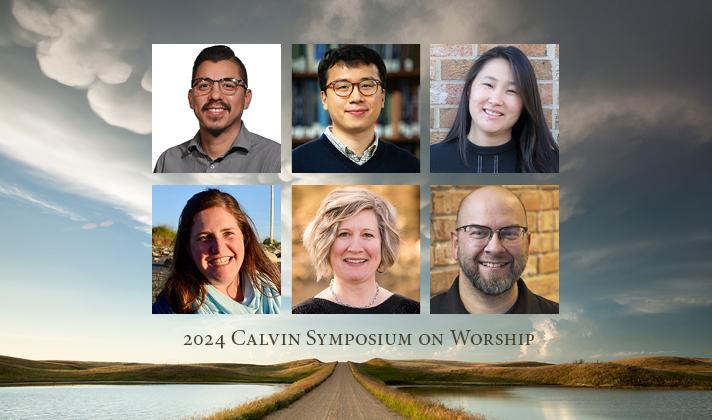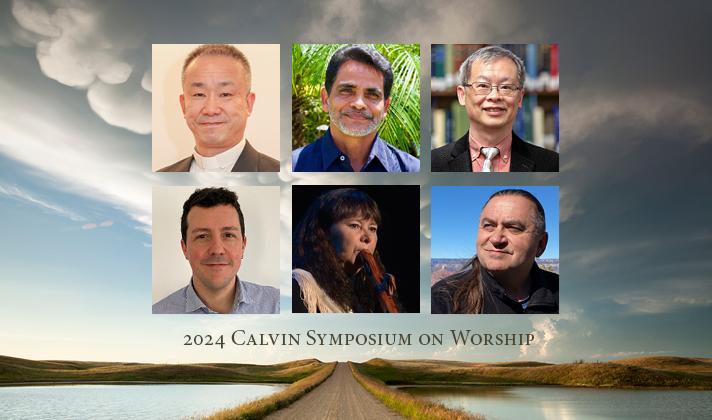A worship service from the 2021 online Calvin Symposium on Worship.
Participants:
This service takes place at Trinity Rathmines Church in Dublin, Ireland
Led by: Rev Rob Jones
Music: Discovery Gospel Choir
Soloist on “O Nzambi”: Prosper Mbemba Koutihou
Soloists on “Uthando Luka Baba”: Sallay Garnett and Gráinne McCarthy
Readers: Discovery Gospel Choir and Juliet Amamure
Prayers: The Haven Community
Sermon: Philip McKinley
Audio, visual, and editing: Scott Evans
For further information see https://www.htrinity.ie/ and https://discoverygospelchoir.ie/
Order of Worship:
WELCOME AND INTRODUCTION
Scripture: Psalm 107:1-7, 33-37
Song: "O Nzambi"
"Ye Kiwidi Ba Samba Ko": the language is KONGO
History
A TIME OF RETURNING AND RECEIVING FORGIVENESS AFRESH
Prayer: Lord God, your love for humankind, which was present from the beginning of all things, extends throughout history and touches even my life. Your love sees failings and forgives. Your love feels pain and wipes away our tears. Your love knows grief, and comforts the sorrowful. Your love sees our separation and brokenness and through Christ welcomes us home. Forgive us when we fail to live lives that reflect your love. Forgive us the many times when we take for granted all that you have done for us. Transform us in Christ, fill us with your Spirit, and empower us to serve you this day and all days. Amen
Silence
ASSURANCE AND FORGIVENESS IN CHRIST
Prayer: May this be a day of hope, and expectation. A day to relish each moment as a gift from you. May this be a day of freedom, of breaking free from our brokenness and sin, of loosening the chains that surround us. May this be a day of peace, of wholeness, of knowing that our lives are in your hands. May this be a day of joy, of blessing, of living in your kingdom and turning again to Jesus as a child of God. May God forgive us, confirm and strengthen us in all goodness and keep us in eternal life. Amen.
THE COLLECT OF THE DAY
Prayer: Almighty and eternal God, you have kindled the flame of love in the hearts of the saints: Grant to us the same faith and power of love, that, as we rejoice in their triumphs, we may be sustained by their example and fellowship; through Jesus Christ our Lord.
THE MINISTRY OF THE WORD
Scripture: Romans 12
Sermon: Discover Beauty in Everyone
PRAYERS
. . . Concluded with The Lord's Prayer:
Our Father, who art in heaven, hallowed be thy name, thy kingdom come, thy will be done, on earth as it is in heaven. Give us this day our daily bread. And forgive us our trespasses as we forgive those who trespass against us. And lead us not into temptation, but deliver us from evil. For thine is the kingdom, the power, and the glory for ever and ever. Amen.
Song: "Alleluia"
Prayer: Creator of all, Sustainer of all, Savior of all, your glory and majesty are beyond our understanding, your power too is breath-taking to behold. And yet your love enfolds us as a gentle breeze. May the Savior of all, perfector of all and Creator of all, bless us, keep us and lead us, so we may walk in the newness of life for the glory of your name. Help us pick up the cross of discipleship and follow you in joy, hope and love. Amen
Location: Dublin, Ireland
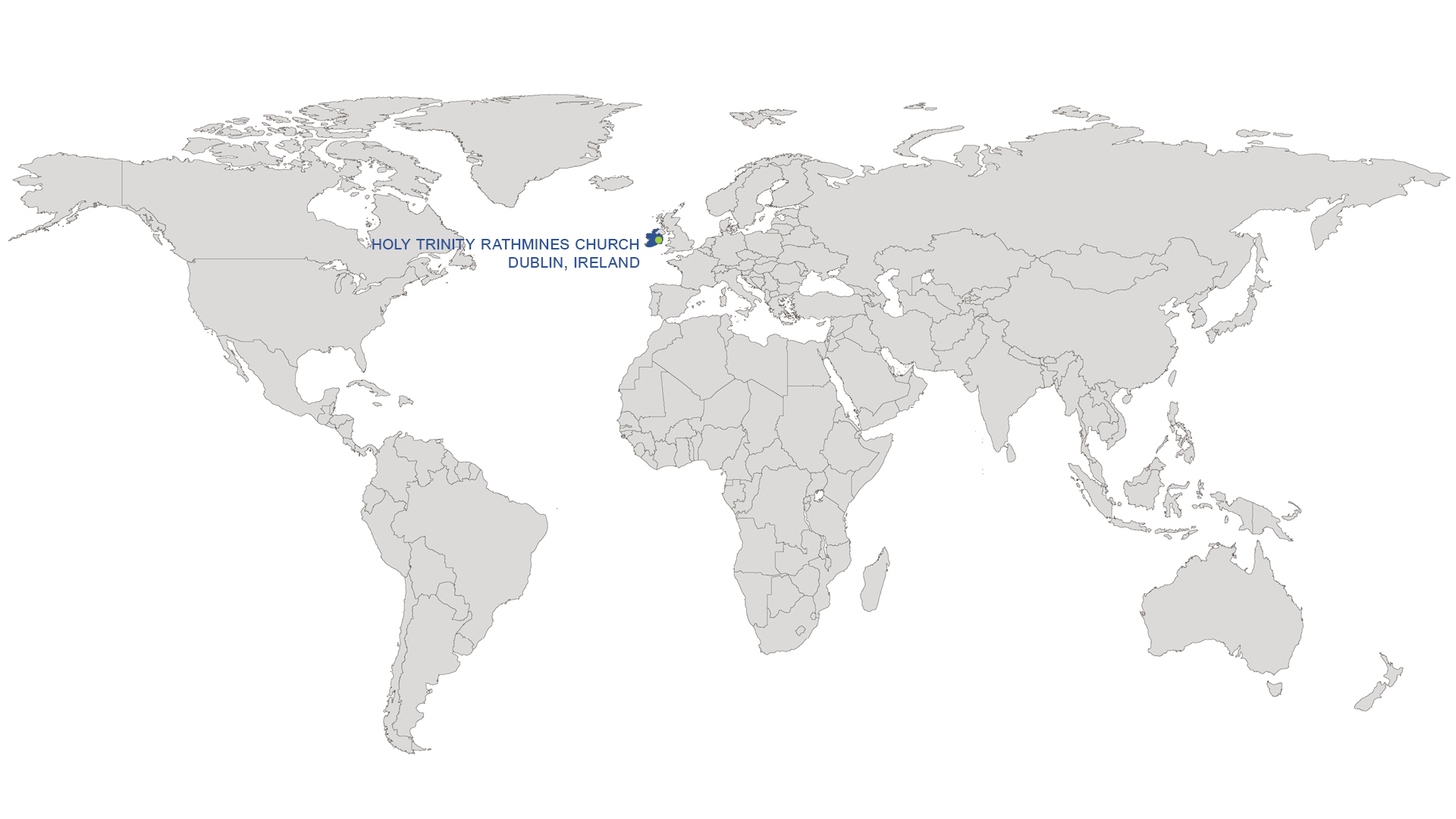
Copyrights:
“O Nzambi”
Country of origin: Congo-Brazzaville and the United State of America
Language: Kongo and English
Text and Music: Attributed Frederick Douglass; arr. R. Judge
Used by permission.
“Uthando Luka Baba”
Country of origin: Zimbabwe and South Africa
Language: Ndebele and Xhosa
Text and Music: traditional; arr. R. Judge
Used by permission.
“Alleluia”
Country of Origin: Mauritius
Language: Creole
Text and Music: traditional; arr. A McCormick and K. Madoo
Used by permission.
"Sermon Transcript"
Our music this morning, and indeed all those who read that most creative and inspirational Eugene Peterson twist on Romans 12, all come from an inner-city multicultural choir here in Dublin called Discovery Gospel Choir, of which I am proud to call myself a member, just as I’m proud to call myself a member of this church here, in Holy Trinity Rathmines. But the motto of the choir comes from this very passage, Romans 12:17, “Discover Beauty in Everyone.” As such, this four-word portion features on the choir’s branding and merchandise like a message of hope and an instruction for living, to bring about a new of movement of love. It features most prominently on these kinds of black or sometimes maroon or light blue T-shirts, with the distinctive “D” logo at the top and the simple phrase “Discover Beauty in Everyone” underneath.
Therefore we wear it like a garment of praise on our hearts when we meet with political leaders such as the Lord Mayor of Dublin, or stand in the shadow of history makers such as Frederick Douglass, who toured Ireland for four months in 1845, or civil rights activists, such as Rev. Jesse Jackson, who visited us in 2011, or the Archbishop of Canterbury, or even Pope Francis, for whom the choir performed during his visit to Dublin in 2018. We’ve even brought our message straight to the White House itself!
“Discover Beauty in Everyone” is also the name of our intercultural training resource, and it’s writ large in bold on our banner outside our church. When we tour around Ireland, we wear it to share our message nationwide, from east coast to west. We even wear when we play football with one another.
We wear it for our community training workshops, our school workshops, and when we feature on radio, even though listeners can’t actually see it!
And when our members travel the world, they become individual ambassadors, sharing this simple, powerful message across the globe. For example, Michael in Romania, Isling in Sri Lanka, Ashley in Zimbabwe, Alice in Austria, Michael in Zambia, Peter in France.
We’ve brought it to the Feon'ny Lanitra Choir (Voice of the Sky) in the Lutheran church in Manafiafy, Sainte Luce in Madagascar. We brought it to Qumran, the site of the Dead Sea Scrolls in the Holy Land, and to an Eritrean Orthodox Church made of wooden pallets in the Calais Refugee Camp in northern France. It was even seen worn by a volunteer who was helping to clean up the streets after a recent End SARS protest in Ibadan in Nigeria.
Sometimes, however, this message of love isn’t always positively received, but sometimes it is! Heck, even Superman wears it!
Thanks in part to Eugene Peterson, “Discover Beauty in Everyone” is a profoundly fresh take which helps unlock new meaning on an ancient foundational Christian text. St Paul’s letter to the Romans is surely the most influential and formative epistle in the New Testament. While it is written primarily as a tool of reconciliation into a context of conflict, it has ironically and tragically been used as a vehicle for Christian conflict through the ages. And yet, while its doctrinal first half is where most of the battles have taken place, by the time we reach Paul’s application and practical instructions here in Romans 12, we are thankfully in a much more relaxed and united space. Indeed, there’s very little you can disagree with here. Think, for example, of verse 9: “Love from the center of who you are; don’t fake it.” There’s very little you can even criticize Paul on here, like verse 15: “Get along with each other; don’t be stuck-up.” We could say Romans chapter 12 is a bit like Granny’s apple pie—what’s there not to like?
And yet, if Romans 12 is so appealing and so straightforward, why is it that when we wear our “Discover Beauty in Everyone” T-shirts, so many people tell us that they can’t believe that this is a quote from the Bible, thinking instead that perhaps scripture or the church or even Christianity in their minds is far too judgmental and narrow to make such an inclusive statement as this.
And yet Christianity may rightly reply by suggesting that actually it has lived out Romans 12 in so many countless ways through centuries of education, health care, community development, and philanthropy all over the world. But this answer doesn’t explain why such negative public perceptions still exist.
Through the murder of George Floyd and the Black Lives Matter movement, 2020 provided the world and its Christian traditions with a monumental opportunity to confront the evil of racism. It unleashed a wave of groundbreaking research, inspirational testimonies, and historical analyses into various Christian responses to racism. Indeed, the results are still flooding in. My own tradition, the Church of Ireland, which numbers around 400,000 people, or 7% of the island of Ireland, and is part of the worldwide Anglican Communion, was also called to interrogate its own history. One of the early concerns was whether historical figures should be judged by the morals of today. However, if we believe in the primacy of scripture, then we can take a 2,000-year-old text from Romans 12 and use it as an applied moral barometer and a Christian standard.
Therefore, how do we square St. Paul’s instruction in verse 6, “Let’s just go ahead and be what we were made to be,” or in verse 7, “Don’t get bossy,” with historic Christian benefits gained through the North Atlantic slave trade? My own tradition has examples of churches and schools which were built on the back of the slave economy. While I belong to a Protestant tradition which mostly opposes statues of Jesus, Mary, or Joseph, instead I question why slave owners and benefactors are remembered in large and dominant statues in churches and graveyards around the country.
Our theological roots need to be questioned, not least one of the Church of Ireland’s most influential theologians and philosophers, the Bishop of Cloyne, George Berkeley. He has both a prestigious university and a city in the United States named after him today. In 1730 Berkeley traveled from Ireland across the Atlantic and purchased slaves, which allowed him in turn to fund a scholarship for the fledgling Yale University. He baptized three of his slaves, and when he did so he said this: “The gospel liberty consists with temporal servitude.
How do we also square St Paul’s injunction in verse 6 that ‘If you help, just help, don’t take over,’ or in verse 7, “If you’re put in charge, don’t manipulate.” How do we square that with what is overwhelmingly a one-way overseas tradition that has sent money, resources, and personnel to the Global South for over two centuries but has offered so little to encourage reciprocal arrangements or to facilitate resources and people from the Global South integrating well into life in Ireland? This is especially complex here in Ireland, which mostly believes that it was a colonized nation, not a colonizer, even though we were a full part of the British Empire until 1922. And this conflict results in differing attitudes to migrant responsibility. And finally, how do we measure up when we consider St. Paul’s encouragement in verse 13, “Be inventive in hospitality,” or in verse 17, “discover beauty in everyone,” when we look at the whole question of representation and leadership diversity? The statistics here in my Church are stark, and—almost across the board at all senior committees and even Diocesan levels—there is a near total absence of ethnic and cultural diversity at a senior level despite the growing and dynamic diversity of Irish society. Perhaps, therefore, Romans 12 exposes a profound gap between aspiration and application. Yes, it may inspire, but it might also help us to confront our failings—our personal failings, our collective failings, our historic failings. Perhaps the real challenge is that discovering beauty in everyone is a universal struggle that occurs throughout all ages. We constantly need to revisit the sacrificial and countercultural benchmarks of our Christian living in every age and every context because Romans 12 never loses its cutting-edge relevance.
So where do we go with this challenge as we step out into 2021? Can I suggest three ways forward? We can restart, we can rewrite, and we repeat.
Firstly, to restart. One of the tools used by the Irish government in controlling the COVID-19 figures was what they described themselves as a “circuit breaker.” If we think of sin and especially intergenerational and systemic discrimination in terms of health care—think of it like a virus or a pandemic—what are the “circuit breakers” we can draw upon to end the sickness of evil? Christ’s death on the cross draws us into a new reality with God and with one another. Twenty-twenty was in itself such a radical year, (one) when we imagined and felt within reach of whole new possibilities for planet Earth and human mutuality. Therefore, is 2020: 1) what the Greeks might have called a kairos moment, a God opportunity that is simply bursting with possibility, awaiting our Christian response? How can we, within this context, “circuit-break” racism inside and outside of the church? Scripture says that God “makes all things new” (Rev. 21:5). In Romans 12, St. Paul encourages us to be “alert servants of the Master, cheerfully expectant” for this time of transformation.
Secondly, to rewrite. Growing up in Ireland, a typical Irish mother always led her sons to believe that the world revolved around them. But it doesn’t take long to realize how fickle and inadequate this worldview really is. From a white, Western perspective, the same is true for Christianity. What was perhaps packaged for so long as orthodoxy may instead actually have been just a selective set of Western interests. I, for one, need to remind myself in Christian terms that I am today an ethnic minority. There are more Black Christians in the world than white Christians. Indeed, I am also an ethnic minority in Biblical terms. Given the sheer and even unhealthy imbalance that Eurocentrism has dominated in the history of Christianity, is the time right for me to “practice playing second fiddle,” as St. Paul says in Romans 12:10. If Christ’s death on the cross, his resurrection and ascension make us all equal to one another, does this in fact mean it is time for me, with my various privileges, to simply remain quiet and to serve? Does discovering beauty in everyone usher in a new era where we begin to rewrite and to sing a new song?
Finally, repeat. There is a profound Eastern Church tradition called “hesychasm” which involves repeating a simple prayer, such as ”Lord Jesus Christ, have mercy on me,” over and over again. Repetition is reinforcement. And if we are called to be countercultural Christians in a challenging world, then we need all the tools of reinforcement we can get. Like a couples counselor that asks a feuding husband and wife to recall and remember a time when they first fell in love, there are certain muscles we need to keep active if we are to remain moral and healthy Christians.
Of course we live an age of algorithms and echo chambers of online data that deliberately reinforce us back into polarizing political bubbles. We must take great care not to be drawn in unconsciously and shaped by this negative form of repetition. Instead, St. Paul, in Romans 12, is building us up with the kind of repetition that builds the healthy Christian. St. Paul loves his lists: his sin lists, the gifts of Spirit, the fruit of the Spirit, etc. They act in some way like checklists, and in other ways they’re like an art gallery, giving us a very immersive and holistic sense of the point that he is trying to convey. There’s a richness to them, even if they can appear a little repetitive or similar to one another.
If the world is filled microaggressions, how do we as Christians saturate our minds and live our lives with counter microcompassions, the kind of microcompassions that are bursting through all of Romans 12? For St. Paul, it all boils down to these ordinary and mundane practicalities. It boils down to our application of our faith. It boils down to how we really live this stuff out, how the rubber hits the road. How do we wear our Christian faith, our love of Jesus Christ, our heart on our sleeve, or the words on our chest? Repeat after me: discover beauty in everyone.

